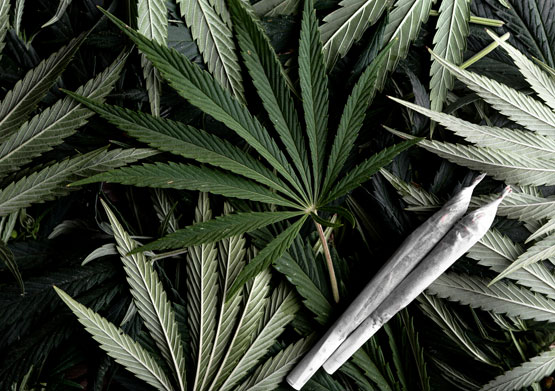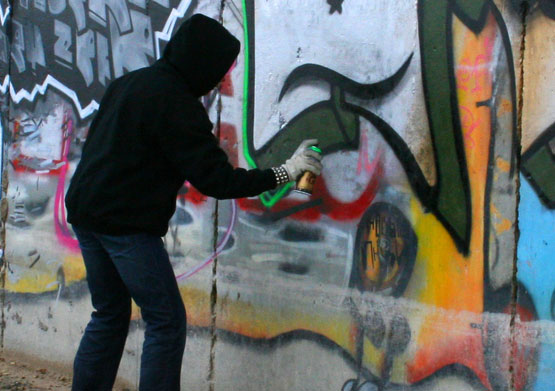
Legally, a juvenile is a person under the age of 18. When charged with a crime, juveniles are often steered to the juvenile justice system, focusing on rehabilitation instead of punishment. But, though limited, some juvenile cases are directly sent to adult court. These cases are generally the result of a repeat juvenile offender who has committed a serious crime.
Gainesville defense attorney Adam Stout has defended numerous juveniles, including University of Florida students, in the Gainesville, FL area. Offenses he has defended commonly include open house party offense, underage possession of alcohol, drug possession, marijuana offenses, possession of a fake ID, theft, vandalism, and underage DUI.
Open House Parties
An open house party offense occurs during a social gathering at a residence where alcohol is being consumed or narcotics are being possessed or consumed by a minor. However, the criminal penalty only pertains to adults over the age of 18. This means the adult who controls the residence, whether a home, apartment, condo, or other dwelling, is prohibited from hosting a party where they explicitly know a minor is consuming or possessing alcohol or drugs at the residence.
An open house party offense is a second-degree misdemeanor in Florida, the least serious misdemeanor in the state. A conviction can carry a jail term up to 60 days and a fine up to $500.
Truancy
It may be fun to skip school, but the consequences of chronic truancy can be serious. Any minor aged 6–16 who has excessive unexcused absences from school may receive truancy charges under Florida truancy laws. Juvenile truancy charges can include additional schooling, mandatory therapy, juvenile detention, probation, and losing their driver's license, permit, or having their application denied.
Parents aware of their children's truancy or did not comply with attempts to keep them in school could be charged with a misdemeanor, which can carry a jail term of up to 60 days and a fine up to $500.
Underage Possession of Alcohol
An open house party offense occurs during a social gathering at a residence where alcohol is being consumed or narcotics are being possessed or consumed by a minor. However, the criminal penalty only pertains to adults over the age of 18. This means the adult who controls the residence, whether a home, apartment, condo, or other dwelling, is prohibited from hosting a party where they explicitly know a minor is consuming or possessing alcohol or drugs at the residence.
An open house party offense is a second-degree misdemeanor in Florida, the least serious misdemeanor in the state. A conviction can carry a jail term up to 60 days and a fine up to $500.
Drug Possession
Drug possession in Florida carries the same charges for juveniles and adults. A person charged with drug possession is someone who didn’t manufacture, distribute, or sell the drug.
Which charges your child ultimately faces depends on the type of drug, the quantity, and the location of the arrest.
Kind of Drug In Possession
Illegally controlled substances include marijuana, methamphetamine, cocaine, LSD, heroin, and “club drugs.” Club drugs include MDMA (ecstasy), GHB, ketamine, and rohypnol. Bath salts and “Spice” were recently added to the list of banned substances by the Florida legislature.

First-Degree Misdemeanor:
Up to 20 grams of marijuana, except for legally prescribed medical marijuana.
Third-Degree Felony:
More than 20 grams of marijuana, except for legally prescribed medical marijuana; up to 28 grams of cocaine; up to 10 grams of MDMA; up to 1 gram of LSD; and up to 4 grams of heroin or opiate.
First-Degree Felony:
More than 25 pounds of marijuana; more than 28 grams of cocaine; more than 10 grams of MDMA; more than 1 gram of LSD; and more than 4 grams of heroin or opiate.
Location of Arrest
Penalties for drug possession increase if your child was within 1,000 feet of a:
- Child care facility;
- State, county, or municipal park;
- Community center;
- Public housing facility;
- Public or private elementary, middle, or secondary school within the hours of 6 a.m. and 12 a.m. (midnight);
- Place of worship where a church or religious organization regularly conducts religious services; and
- Public or private college, university, or other postsecondary educational institution.
- Publicly owned recreational facility;

Marijuana Offenses
As a Schedule I controlled substance, possession of marijuana is a crime regardless of the amount. However, Florida Statute 381.986 governs possession for a person with a legally obtained prescription for medical marijuana in Florida.
Marijuana concentrates like resin, wax, and oil are not legally defined as marijuana in Florida and are prosecuted separately. Possession of marijuana concentrates in any amount, even if the total amount is less than 20 grams, is a third-degree felony and carries a penalty of up to five years in prison, five years of probation, and a $5,000 fine.
Conviction also carries a one-year revocation of your driver’s license or driving privilege for marijuana itself or a concentrate.
Possession of a Fake ID
A fake ID is a fake, false, or altered driver’s license or state-issued ID. Fake IDs are commonly purchased or created by using an altered or forged date of birth or using the ID of a sibling or friend whom the person resembles in physical appearance.
Possession or use of a fake ID in Florida is a felony. Along with possession, fake IDs come with secondary charges.
-
Using Someone Else’s Driver’s License or State-Issued ID:
This is a second degree misdemeanor, carrying a penalty of a $500 fine, 60 days in jail, and up to a one-year driver’s license suspension. -
Letting Someone Borrow Your Driver’s License or State-Issued ID:
Allowing someone to borrow your legally obtained ID carries the same penalties as a person using it without your knowledge. -
Identifying Yourself to a Police Officer Using a Fake ID:
Identifying yourself to a police officer with a fake ID is a first-degree misdemeanor and is punishable with a $1,000 fine and up to one year in prison.
Theft Crimes
Theft crimes in Florida are categorized by the total amount taken.
Petty Theft
Up to $300 is petty theft and a misdemeanor by Florida law. It carries a penalty of up to one year in jail and a $1,000 fine.
Burglary
A burglary occurs when a person enters a structure, such as a home or business, with the intent to commit a crime. Intention outweighs even if nothing is taken from the structure or the person uses a hand or tool to enter. Juvenile penalties for burglary can include:
- Fines
- Restitution
- Counseling
- Probation
- Detention
Grand Theft
Grand theft is taking $300 or more worth of property and is a felony. It breaks down into three degrees of grand theft:
- First Degree: Stolen property has a value of $100,000 or more. The penalty is up to 30 years in prison and a fine up to $10,000.
- Second Degree: Stolen property has a value between $20,000 and $99,999. Maximum penalties are up to 15 years in prison and up to $10,000 in fines.
- Third Degree: Stolen property has a value between $300 and $19,999. Up to 5 years in prison or of probation, and a fine up to $5,000.
Vandalism
Also called criminal mischief, vandalism can be penalized as either a misdemeanor or felony depending on the monetary amount of damage caused. Criminal mischief has willful and malicious intent causing injury or damage to real or personal property which belongs to another person. Along with vandalism, criminal mischief can include:
- Graffiti
- Sabotage
- Defacement
- Breakage
- Other destructive acts

Penalties
Criminal penalties in Florida are divided into either misdemeanor or felony. Incarceration for misdemeanors are usually completed in a county jail, while felonies are completed in state prisons. Adam Stout is a criminal defense lawyer Gainesville residents can depend on to thoroughly review each case and fight for your rights.
Misdemeanor
First Degree
The most serious misdemeanor in Florida, first-degree misdemeanors carry penalties of up to one year in jail and fines up to $1,000.
Second Degree
Second-degree misdemeanors carry penalties up to 60 days in jail and fines up to $500. If a misdemeanor is not specifically classified as a misdemeanor, its penalties are for a second-degree misdemeanor.
Felony
A person previously convicted of two or more felonies and is convicted of another could be sentenced under one of Florida’s recidivist sentencing schemes. These sentencing guidelines often carry lengthy prison terms.
Capital or Life
Reserved for the most serious crimes, capital felonies have a penalty of either life in prison or the death penalty. If a person is charged with a life felony, it has a penalty of life in prison and a fine up to $15,000.
First Degree
First-degree felonies can have a penalty of up to 30 years in prison and fines up to $10,000.
Second Degree
Second-degree felonies carry a penalty of up to 15 years in prison and fines up to $10,000.
Third Degree
Third-degree felonies have a penalty of up to 5 years in prison and up to a fine of $5,000.
Contact A Gainesville Criminal Defense Attorney
Juvenile offenses can carry serious repercussions for you and your child. A juvenile conviction may mean fewer future employment and educational opportunities, lost scholarship monies, and more. As a former prosecutor, Adam Stout knows how the State will approach a juvenile case. His experience, coupled with a personal and detailed approach to each case, has helped numerous juveniles. Day or night, contact Stout Defense, P.A. for a criminal defense attorney Gainesville residents can count on.
